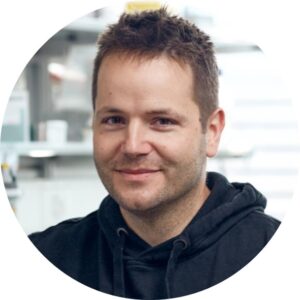SWAMMERDAM LECTURE - Thursday November 17th 2022 at 16:30
Prof. dr. Georg Keller
The Significance of Self-generated Sensory Feedback

Affiliation | Friedrich Miescher Institute for Biomedical Research, Basel, Switzerland |
Date / time | Thursday November 18th 2022 at 16:30 |
Host | dr. Jorge Mejias (UvA) |
Location | Woudschoten Hotel & Conference Center This Swammerdam lecture is part of the ONWAR/CEN annual PhD meeting. Other scientists in the ONWAR community are invited to join the lecture on site: there will be no hybrid option. |
A defining aspect of our brain’s interaction with the world is the coupling between movement and the resulting sensory feedback. With experience the brain learns to associate specific movements with their sensory consequences and thus builds an internal model of the world. Based on this we speculate that much of what we perceive is not the result of what our sensory organs transmit to our brains but either the result of what we expect to perceive or the result of a large deviation from these expectations. Our work aims to understand the computational contribution of neocortex to this process. Our research focuses on mouse visual cortex and is guided by the ideas of predictive processing. In visual cortex, visual input is compared to predictions of visual input based on these internal models to compute prediction errors. Experience with self-generated visual feedback establishes a finely tuned circuit in visual cortex capable of computing prediction errors between top-down predictions and bottom-up visual input. Our results describe the cortical microcircuit that implements this computation, as well as contributing to our understanding of the molecular markers of the neurons with defined computational roles. Understanding and manipulating this circuit will be instrumental in advancing our understanding of perceptional disturbances, such as those observed in schizophrenia.
Prof. dr. Georg Keller is Senior Research Group Leader at the Friedrich Miescher Institute (FMI) for Biomedical Research. He received his PhD thesis on ‘auditory feedback processing in the songbird’ from ETH Zurich in 2009, supervised by Prof. Richard Hahnloser. After working as a postdoctoral researcher with Mark Hubener at the Max Planck Institute of Neurobiology in Munich, he joined the FMI as Group Leader in 2012. The main aim of his research is to elucidate the key principles underlying sensory processing in the visual cortex, using as a central hypothesis the idea that sensory perception is an active process based on predictions and the detection of deviations from these predictions.

